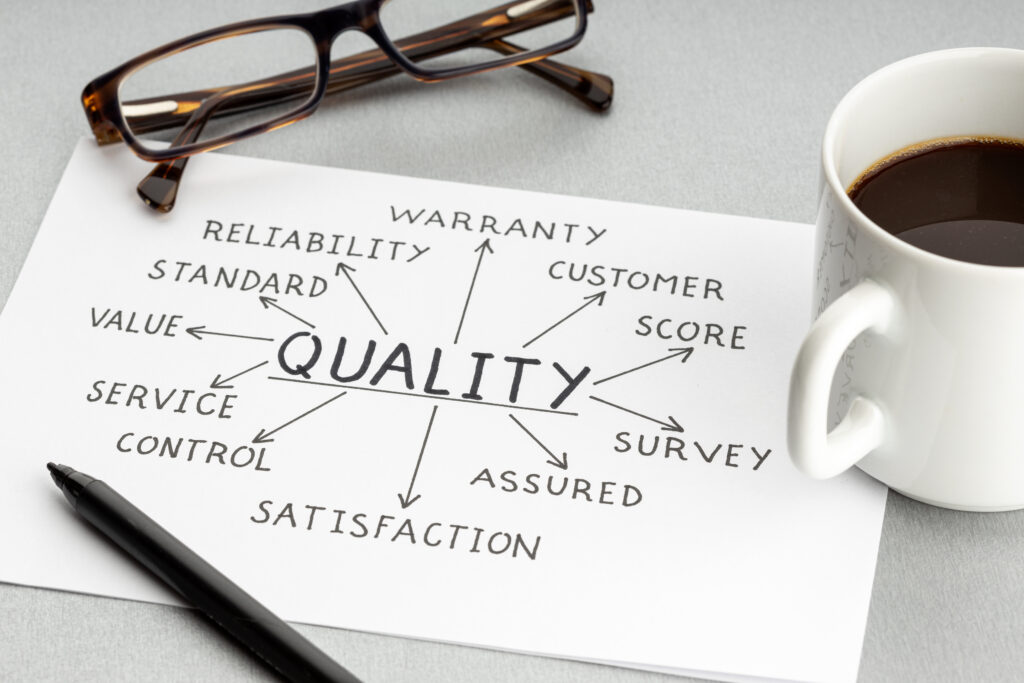Getting Your Team on Board: Tips for Instilling a Culture of Quality
Creating a culture of quality within your team can be a challenge, but it’s worth the effort. Quality assurance (QA) values are essential for any successful organization, as they ensure that products and services meet the highest standards of quality. The key to making this happen is to get your team on board with the idea.
Here are some tips for instilling a culture of quality in your team so that you can ensure that you are providing only the best results for your clients and customers.
Why Creating a Culture of Quality is Important

In today’s competitive business landscape, creating a culture of quality is more important than ever.
The success of your organization depends on delivering products and services that meet or exceed customer expectations. When you instill a culture of quality within your team, you are ensuring that every aspect of your business is focused on providing the highest standards of excellence.
There are several reasons why creating a culture of quality is important. First and foremost, it helps to build trust and loyalty with your customers. When your products and services consistently meet their needs and expectations, they are more likely to become repeat customers and refer your business to others.
Secondly, a culture of quality fosters innovation and continuous improvement. By encouraging your team to strive for excellence, you are creating an environment that is conducive to finding new and better ways of doing things. This leads to increased efficiency, productivity, and ultimately, profitability.
Furthermore, a culture of quality helps to build a strong reputation for your organization. When your customers associate your brand with quality, they are more likely to choose you over your competitors. This can give you a competitive edge and contribute to long-term success.
Overall, creating a culture of quality is essential for any organization that wants to thrive in today’s competitive market. It not only benefits your customers but also your team and your bottom line. By making quality a top priority, you are setting yourself up for success in the long run.
Fostering a Team Mentality of Quality

Fostering a team mentality of quality is essential for creating a culture of excellence within your organization. This involves ensuring that every member of your team understands the importance of their role in maintaining high standards and takes ownership of their work.
One way to foster a team mentality of quality is to provide clear expectations and guidelines for your team. Clearly define what quality means for your organization and provide specific examples of what it looks like in practice. This will help your team understand what is expected of them and how their work contributes to the overall quality of your products or services.
Another important aspect is to promote open communication and collaboration within your team. Encourage team members to share ideas, ask questions, and provide feedback. This creates an environment where everyone feels comfortable discussing issues or concerns related to quality and working together to find solutions.
Additionally, it is important to recognize and reward excellence. Acknowledge and celebrate team members who consistently deliver high-quality work. This not only boosts morale but also reinforces the importance of quality within your team.
By fostering a team mentality of quality, you are creating a culture where everyone is committed to delivering the best possible results. This not only benefits your customers but also enhances the overall success and reputation of your organization.
Encouraging Accountability within Your Team

Accountability is a crucial component of creating a culture of quality within your team.
It ensures that each team member takes responsibility for their work and the outcomes they produce. By encouraging accountability, you are fostering a sense of ownership and commitment to delivering the best possible results.
One way to encourage accountability is to set clear expectations and goals for your team. Clearly communicate what is expected of each team member and the standards they should strive for. This provides a framework for accountability and allows team members to understand their role in achieving the overall quality objectives.
Regularly check in with your team to provide feedback and evaluate progress. This not only keeps everyone accountable but also allows for open and constructive communication. By discussing challenges and providing support, you can ensure that everyone is on track and motivated to deliver high-quality work.
Additionally, promote a culture of learning and growth within your team. Encourage team members to take ownership of their professional development and provide opportunities for continuous learning. This not only empowers individuals but also enhances the overall skill set and expertise within your team.
Lastly, lead by example. As a leader, it is important to demonstrate accountability in your own work. By taking responsibility for your actions and holding yourself accountable, you set the standard for your team to follow.
Encouraging accountability within your team is essential for creating a culture of quality. It instills a sense of responsibility, promotes open communication, and drives continuous improvement. By fostering accountability, you are setting your team up for success and ensuring that the highest standards of quality are met.
Empowering Your Team to Speak Up

Creating a culture of quality involves not only setting high standards but also fostering an environment where every team member feels empowered to speak up.
Encouraging your team to voice their opinions, ideas, and concerns is crucial for maintaining a culture of excellence. When team members feel heard and valued, they are more likely to contribute to the overall quality of your products and services.
To empower your team to speak up, it is important to create a safe and supportive space for open communication. Foster a culture where everyone’s ideas are welcomed and respected, regardless of their position or experience. Encourage team members to share their insights, offer suggestions for improvement, and express any concerns they may have. Regularly hold team meetings or check-ins to provide opportunities for open dialogue.
Additionally, actively listen to your team members and take their feedback seriously. Show appreciation for their contributions and let them know that their opinions matter. By valuing and acting upon their input, you are sending a powerful message that speaking up is not only encouraged but also impactful.
Empowering your team to speak up not only enhances the quality of your work but also boosts morale and team engagement. It fosters a collaborative and inclusive environment where everyone feels like they have a voice in the pursuit of excellence.
Leading by Example: The Role of Management

In creating a culture of quality within your team, the role of management is absolutely crucial. As a leader, it is essential to lead by example and set the tone for the entire organization. Your actions and behavior speak volumes and influence how your team perceives and prioritizes quality.
First and foremost, it is important for management to prioritize quality in everything they do. This means consistently delivering high-quality work, meeting deadlines, and going above and beyond to exceed expectations. When your team sees that quality is a priority for you, they will be more motivated and inspired to follow suit.
In addition to demonstrating the importance of quality through your own work, it is essential to provide support and resources for your team to deliver high-quality results. This includes ensuring they have the necessary training, tools, and resources to excel in their roles. Furthermore, provide regular feedback and recognition for their efforts to reinforce the importance of quality.
Finally, encourage an environment of continuous improvement by promoting learning and development opportunities. Lead by example by seeking out opportunities to improve your own skills and knowledge, and encourage your team to do the same. By prioritizing continuous improvement, you create a culture that values growth and innovation.
In summary, as a manager, you have a significant impact on the culture of quality within your team. Lead by example, provide support and resources, and prioritize continuous improvement. By doing so, you will inspire your team to embrace quality as a core value and ensure that your organization consistently delivers exceptional results.
Making Continuous Improvement a Priority

To truly instill a culture of quality within your team, it is essential to make continuous improvement a priority. This means creating an environment that values learning, growth, and innovation. By continuously seeking ways to improve your products, services, and processes, you can stay ahead of the competition and ensure that your customers receive the best possible results.
One way to make continuous improvement a priority is to encourage a mindset of experimentation and exploration. Encourage your team members to take risks, try new approaches, and learn from their mistakes. Emphasize that failure is not a setback but an opportunity for growth and improvement.
Additionally, provide opportunities for professional development and training. Invest in your team’s skills and knowledge by offering workshops, courses, or conferences that align with their roles and goals. This not only enhances their abilities but also fosters a culture of continuous learning.
Regularly evaluate and assess your team’s performance and processes. Set specific goals for improvement and track progress. Celebrate successes along the way, and provide support and guidance for areas that need improvement. By making continuous improvement a priority, you are setting your team up for long-term success and ensuring that quality remains at the forefront of your organization.
Ready to sell your property? Give us a call today and learn more about our professional photography services and marketing that can boost your property listing!
Plus, explore our virtual assistant coaching program to level up your business. Don’t forget to tune into our new podcast for even more valuable insights!
